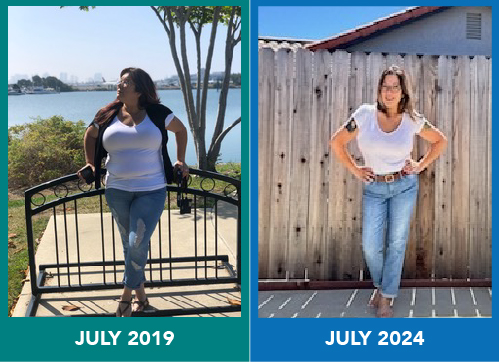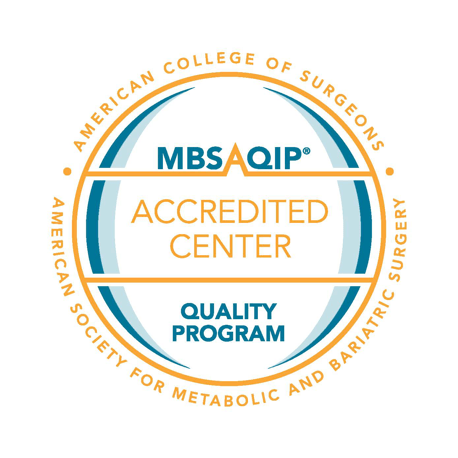
If independent treatments such as diet and exercise haven’t worked for you, or if you lost weight through a fitness regimen only to regain it, know that this is not the result of the wrong diet or a lack of willpower. When a patient has a body mass index greater than 35, their chances of reaching an average body weight for a lasting period of time is less than one percent. That is why surgery is often the ideal option for patients with severe obesity.
Bariatric surgery can provide permanent weight loss by making your stomach smaller, thus reducing your appetite. At Lompoc Valley Medical Center, we use the most advanced, minimally invasive laparoscopic and robotic-assisted surgical techniques. This means bariatric surgery options with smaller incisions, fewer complications, and a quicker recovery time. Our team of specialists offers a full range of procedures, conveniently in town, and we will work with you to navigate the process from start to finish, helping you find the surgical option that best fits your needs. We’ve helped lots of people achieve their goals—let us help you too!
Through bariatric surgery, patients can lose weight for good. This permanent weight loss often reduces (or can even eliminate) a host of weight-related medical problems, such as diabetes, sleep apnea, high blood pressure, and high cholesterol. These health benefits also apply to conditions such as arthritis and acid reflux, which can be exacerbated by obesity. With bariatric procedures, you can also lower your chances of heart disease, stroke, and cancer. Please don’t hesitate to find out if you’re eligible for bariatric surgery. Contact us today to start your medical weight loss journey.

Also known as the gastric sleeve, sleeve gastrectomy involves reducing the size of your stomach so you can eat less food in one sitting. This is a restrictive surgery, as it allows you to eat smaller food portions and feel full sooner.
About 80% of your stomach is cut away in gastric sleeve surgery. The remaining 20% of your stomach will be a vertical, banana-shaped pouch. Gastric sleeve surgery is permanent and non-reversible. This is because it involves the surgical removal of a portion of your stomach.
This surgery may also affect your body’s levels of leptin and ghrelin. Leptin and ghrelin are “hunger hormones” that regulate your appetite. Lower levels of these hormones may reduce your appetite and prevent you from overeating.
Gastric sleeve surgery is a life-long commitment. When you commit to this surgery, you also commit to eating less food and making healthier choices. You will also be expected to exercise regularly. All these behaviors can help you maintain a healthy weight.
Roux-en-Y gastric bypass surgery involves reducing the size of your stomach and rerouting part of your small intestine. A smaller stomach will allow you to eat smaller food portions and avoid overeating. Having your small intestine rerouted will enable your body to absorb fewer calories from the foods you eat. This weight-loss surgery is both a restrictive and malabsorptive procedure due to the way it restricts portion sizes and prevents your body from absorbing high amounts of calories.
During Roux-en-Y gastric bypass surgery, we staple part of the stomach to create a smaller stomach pouch. Then, we cut part of the small intestine and attach it directly to the stomach pouch so food can bypass parts of the stomach and intestine that absorb the majority of calories.
Roux-en-Y gastric bypass surgery is performed as a minimally invasive laparoscopic surgery, which means it is safer and far less invasive than open surgery. We make a few small incisions instead of one long incision and insert a tiny camera and other surgical tools that provide a clear and precise view of your stomach while we perform the procedure.
Weight-loss medications are prescription medications closely monitored by our physicians to help you reduce your appetite and improve your metabolism. We follow Food and Drug Administration guidelines and approvals to prescribe medications.
The medications used to treat obesity work in different ways. Some medications may help you feel less hungry or make you feel as if your stomach is full sooner than it would without medication. Some medications make it harder for your body to absorb fat from the foods you are eating. Weight-loss medications are used in combination with a reduced-calorie diet and physical activity regimen. Weight-loss results will vary depending on the individual and associated health concerns. Some patients may regain weight after ending the use of the prescriptions.

He completed his residency in general surgery at Santa Barbara Cottage Hospital, with work in general surgery, trauma, laparoscopy, and endoscopy. He completed a fellowship at North Shore University Hospital in Long Island, New York in minimally invasive and bariatric surgeries.
His specialties include advanced laparoscopic surgery, weight-loss surgery, endoscopy, anti-reflux surgery, and hernia repair.

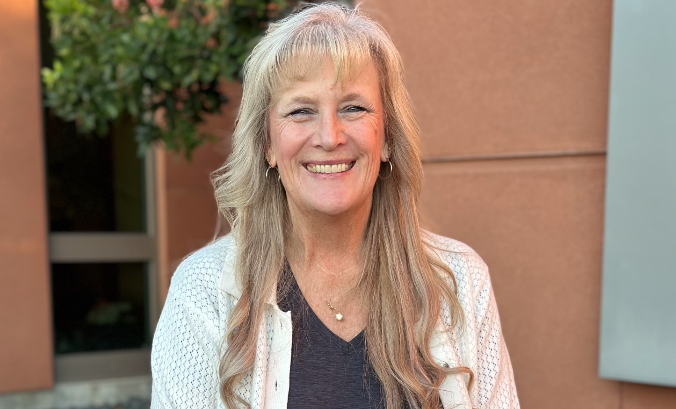
Former Lompoc resident Mary Ann Brown has no hesitation in her voice when asked if she has any regrets about undergoing bariatric surgery.
“I would do it again in a heartbeat,” the 62-year-old grandmother of 11 says.
Mary Ann struggled with weight throughout her life, especially following the births of her four children.
“I battled weight,” she says. “It was up and down. I was overweight for quite awhile. I did Jenny Craig (weight loss program) and lost a lot. Then I would yo-yo up and down.”
It wasn’t until she retired in June 2015 that she really noticed she was gaining more weight.
“I wasn’t as active,” Mary Ann recalls. “I said ‘I’m going to eat whatever I want to eat. I don’t care.’”
Her children were adults and no longer living at home, and she and her siblings lost their parents within a span of a few months. She was having a down period, eating out a lot and not making the healthiest choices.
“I wasn’t really taking care of myself,” she admits.
At her lowest adult weight, Mary Ann was 159 pounds. By the time she began considering bariatric surgery at LVMC, she weighed 242 pounds. She also struggled with knee pain and a torn meniscus and eventually had to go to Urgent Care for relief. She received a referral to Lompoc Health orthopedic surgeon Dr. Richard Rooney, who advised her she needed total knee replacement.
“He said, due to my age and BMI, insurance probably wouldn’t cover it because there were too many risk factors,” she recalls. “He said, ‘Have you ever thought of bariatric surgery?’”
She had considered the weight loss surgery, but believed her insurance would not pay the cost. Dr. Rooney suggested that with her knee issues, high cholesterol, high blood pressure and being borderline diabetic, she’d have enough health concerns to be approved.
“I said if I could do the surgery, get the weight off and postpone having knee replacement, I’d do it,” says Mary Ann, now a resident of northern Arizona.
In March 2022, Mary Ann saw Dr. Christopher Taglia, LVMC’s general and bariatric surgeon. She’d met him previously when he operated on a family member.
“It was a relief,” she says. “I thought ‘Maybe this will work. Maybe this is the way to go.’”
She felt very comfortable with Dr. Taglia.
“The first time I saw him, I didn’t feel intimidated. You never feel rushed with him. If you have questions, he makes sure you understand, that you’re comfortable. If you leave his office and don’t understand something, that’s your fault. He’ll take the time to answer everything. I love him to death.”
As he does with prospective bariatric patients, Dr. Taglia suggested she try to lose a bit of weight on her own. She was able to do that and was approved for surgery. Dr. Taglia also informed her he’d be conducting the surgery using the da Vinci robotic system.
“I thought it was kind of cool, space-age,” she said of robotic-assisted surgery.
During her surgery, Dr. Taglia also found a growth on her liver. He was able to quickly take images with the robotic system and consult an oncologist during the procedure. Dr. Taglia removed the growth, which was benign.
“It was all fine,” she says. “Everything was good.”
Following the surgery, Mary Ann said she had difficulty adjusting to the level of hydration she needed and ended up in the Emergency Department to receive IV hydration.
“After that, I turned a corner,” she recalls.
She said she enjoyed her appointments with LVMC Registered Dietitian Haley Esdaile, learning about cooking for her new lifestyle.
“I still struggle with getting enough protein,” she notes. “Haley answered all my questions … You just learn to adapt. I love Mexican food, but I’m careful about what I eat.”
She said she’s learned other food “hacks,” including eating chickpea pasta, using peanut butter protein powder and having very small meals. When she goes to places such as Wendy’s, she purchases a child’s size cheeseburger and removes the buns.
“You have to learn how much your body can handle,” she says. “I have about a half a cup of food. I don’t feel deprived. I love Cracker Barrell broccoli cheddar chicken. I look at it and say, ‘Here’s three meals for me.’ I don’t ever feel deprived and I always have leftovers.”
The first month following the surgery, she lost 15 pounds and said it was “amazing.”
“When I had surgery, I was wearing size 18 to 20,” she recalls. “I tried on my first size 10 pair of jeans and I cried. We’re in Old Navy and I’m crying and a lady is looking at me. My husband says, ‘Oh you don’t understand,’ and told her what happened.”
She now fits comfortably in a size 12, a size she has not worn since high school. She also has a fairly common condition following weight loss surgery – body dysmorphia.
“When I look in the mirror sometimes, I still see that heavy person,” Mary Ann says. She struggles with loose skin leftover from the weight loss, though financially has not pursued skin removal surgery.
She finds now, weighing about 80 pounds less than she did at the start of the bariatric journey, that it’s so much easier to play with her grandchildren, who range in age from 15 years to 3 months.
“We’ve been watching our 4-year-old grandson (during the winter holidays). We had the little guy for two weeks. If I was that heavy, I wouldn’t have been able to keep up with that kid.”
She and her husband enjoying being out on their boat in the summer, swimming in the lake near their house.
“It wasn’t as easy to get in and out of the boat as it is now. Getting up off the floor was a chore. Now I can get up and can actually go out and do things with them and keep up with them and enjoy it.”
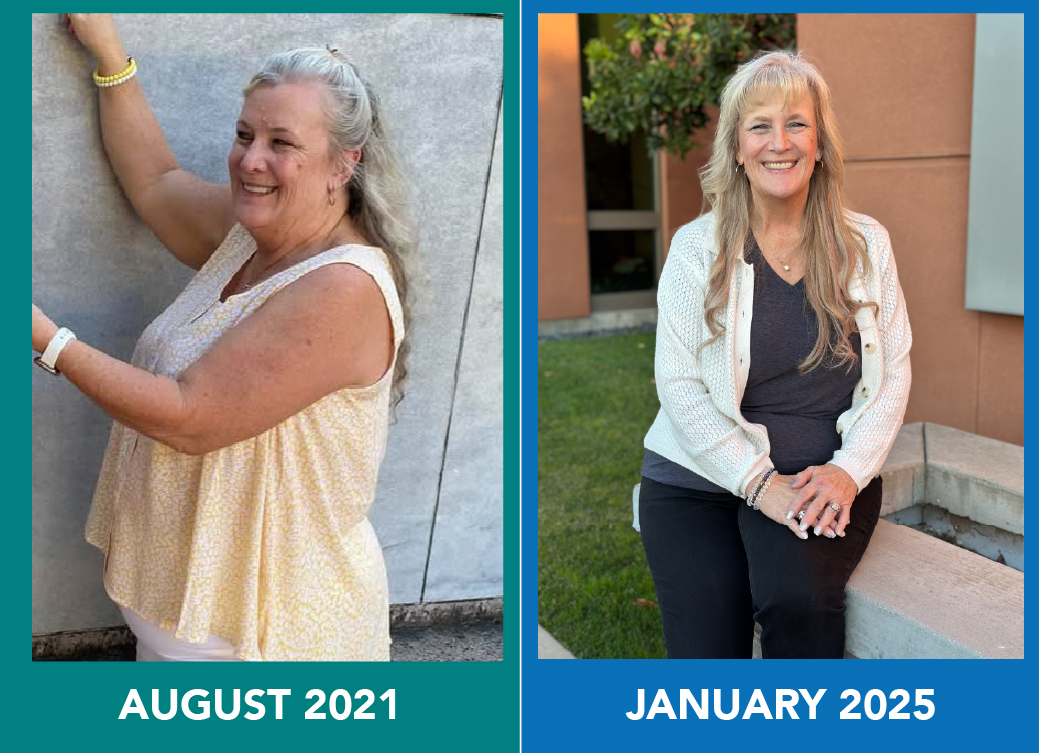
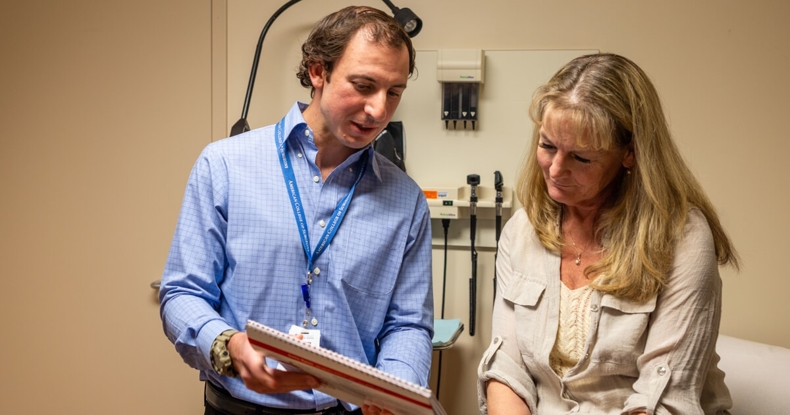
The weight gain didn’t come all at once for Leslie Wuest.
She considered herself active and worked out. She was fit and healthy. But then, she opted to be a stay-at-home mom for a few years when her children were teenagers. She became more sedentary but didn’t change her eating habits.
“Little by little, I gained one or two pounds a year,” she recalls. “It didn’t really get to the point where I felt I needed (weight-loss) surgery. It was more like I need to buckle down and take these 10 pounds off.”
But the weight crept upward, from 130 pounds, to 140, to 150. She became, she says, “psychologically discouraged.”
Finally, in 2022, she noticed a co-worker had undergone bariatric, or weight loss surgery. By then, the U.S. Army veteran and former Santa Barbara County Sheriff’s Deputy weighed about 225 pounds. She was considered pre-diabetic, had high blood pressure and high cholesterol.
Leslie, 58, made an appointment with Dr. Christopher Taglia at Lompoc Health – North H Center to learn more about weight loss surgery. She felt she was “the perfect candidate.”
“It’s interesting what my expectations were,” she says. “As an overweight female, I thought I was going to be walking into a lot of judgment and shame. Not that he would convey it like that, but more ‘Why are you overeating’ or asking me questions I wouldn’t have any answers to. The opposite actually happened. He thanked me for having the courage to come in.”
The doctor and patient talked about the process and expectations.
“He was very honest about it,” Leslie said. “He said ‘This isn’t a magic wand. I’ll do the surgery, but you have to do the work. And if you’re up for the work, I’m up for going through the journey with you.’”
Dr. Taglia was so kind and encouraging, she said she felt she could move forward with surgery. She opted to undergo gastric sleeve surgery. With a gastric sleeve, the surgeon removes most of the stomach, allowing patients to feel full more quickly and reducing hunger. Dr. Taglia also told her to lose 20 pounds before surgery.
“I said, ‘OK, I can do this,” Leslie said. “I was committed when I left there. He was so nice. He reenergized me into wanting to be healthy.”
Before having the surgery, Leslie was required by insurance to see a Registered Dietitian three times, during which she learned enlightening truths about her eating habits. She also was required to see a psychologist.
In evaluating her routines, Leslie discovered she was a boredom eater who liked crunchy foods such as pretzels and chips. When she came home from a long day working at Wal-Mart, she’d turn on the television and start snacking before her husband came home.
She was advised to break that habit by coming home and starting chores or other tasks, to divert her attention from snacking.
“She gave me a new plan,” Leslie explained. “If you’re busy, you’re not going to overeat … With that knowledge about myself, I started a new routine.”
She learned she could still have the snacks she enjoyed – just in much smaller quantities.
“It was freeing,” Leslie says. “You sabotage yourself because you fell off the wagon and had a cookie. It’s OK. Just keep on the path.”
Leslie was able to lose weight prior to surgery and weighed in at 203. She underwent surgery, and a new life began.
“Once I got home, I felt overwhelmed,” she admits. “They were telling me to take vitamins, drink water and protein drinks. You have to fit all this in, but your stomach is only holding so much … When they say it’s a change in lifestyle, they’re not kidding.”
Luckily, she had taken three weeks leave from work, and concentrated on figuring out her new routine. Leslie now weighs about 133 pounds. She walks about eight miles a day at work. Her husband, inspired by her new habits, has also lost 30 pounds. Her dress size went from a 21 to a size 4.
“The gastric sleeve procedure is an investment in yourself and will pay dividends through better health, happiness and productivity,” Leslie says.
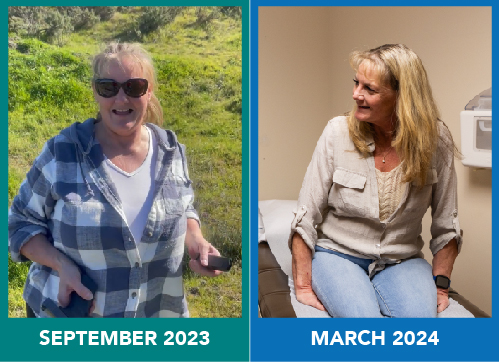
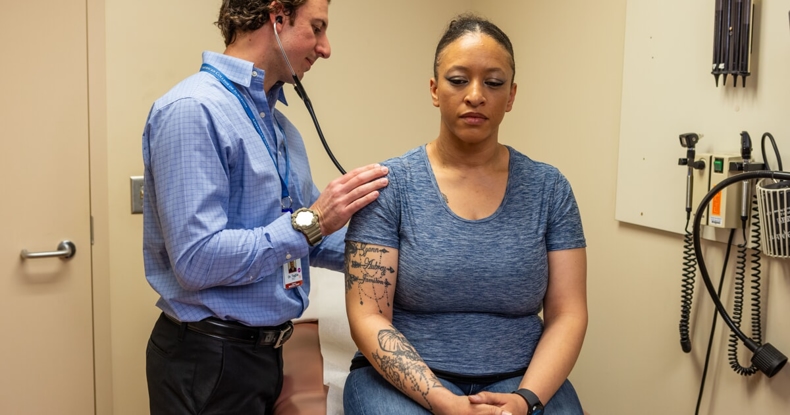
After having bariatric weight loss surgery, Ashunta McMillan laughed at the things she noticed about herself.
Following her gastric sleeve surgery by Dr. Christopher Taglia at LVMC, Ashunta looked in a mirror and noticed something she hadn’t seen in a long time – her collarbone. Then, looking at her hands, she saw the definition of bones, previously hidden by her weight.
So much of her life has changed since her March 2023 surgery. After having a weight that fluctuated throughout her adult life – especially since the birth of her oldest child 18 years ago -- she was able to lose 65 pounds.
“I do not at all regret this,” the 37-year-old mother of three said. “It was the best decision.”
Prior to having gastric sleeve surgery, Ashunta considered gastric bypass, which another relative had successfully chosen. In gastric bypass surgery, doctors make the stomach smaller and bypass the intestine to help people eat less and absorb fewer calories. In gastric sleeve surgery, the surgeon removes most of the stomach, leaving a small pouch about the size of a banana. That reduction in size helps people feel full more quickly and reduces hunger.
Ashunta decided the gastric bypass wasn’t for her, despite her relative’s success with it. She also tried various diets, calorie counting, working out and more.
“I’d lose weight, but it would not stay off … My weight would never stay under control, no matter how disciplined I was.”
She also tried the popular weight loss drug Ozempic and lost 16 pounds. She was concerned about the history of diabetes and obesity in her family.
Finally, she asked for a referral to a gastric bypass specialist – Dr. Taglia.
“I was so ready to have a life change,” says Ashunta, a Certified Nursing Assistant. “I was exhausted. My flexibility was not there. I didn’t feel good; I didn’t feel my best.”
At that time, she weighed 235 pounds. She had a consultation with Dr. Taglia and learned about the various types of surgery. She also learned about the steps she’d have to take prior to surgery, such as having an endoscopy, seeing a nutritionist and having a cardiac check-up.
“I was so ready for the surgery,” she recalls.
Dr. Taglia told her about using robotic-assisted surgery for her gastric sleeve, and she learned that her post-operative pain level would likely be decreased.
She says the adjustment to her “new” stomach has been manageable. She relies on protein drinks to supplement her nutritional intake and has discovered new foods and recipes that contain the low-carb, high-protein diet she now needs.
She’s also noticed she doesn’t get as winded as she did previously and she can get up from a sitting position on the ground with no trouble.
“I can sit in ways I never could before,” she noted. “I can cross my legs. That’s a huge milestone. And I’m so far away now from my steering wheel.”
And 20 years after her high school graduation, she’s back to the same size she was at that time.
“I still see myself at 235,” she said of her body image. “That’s also common. But I feel I can do more, comfortably. At amusement parks, it feels better. It’s made my opens a lot more open. I can do this for a longer period of time; I can fit in a seat comfortably.”
She gives 100 percent of the credit for her success to Dr. Taglia and his team, and is thankful for their care.
“This was the best choice I’ve ever, ever made ... This is my new life.”


Nearing her mid-50s, Mona Martin found she was facing a host of medical problems – she was overweight, had hypertension and migraines, her knees hurt and she was prediabetic.
“It was a lot on my body,” said Mona, who works as a civilian at Vandenberg Space Force Base. “I was not happy at all. Being overweight affected everything in my life. Mind, body and soul.”
One day, she spoke with someone she knew at work who had recently lost a large amount of weight. She soon learned that the coworker had undergone bariatric, or weight loss, surgery.
“When I heard military insurance would cover it, I said ‘Sign me up,” recalls Mona, the wife of a retired military man. “I did a lot of research, and I sat on it for a while. I wanted to make sure I was ready mentally. It’s a lot of work. People are going to think it’s a quick fix. In my experience, it is not.”
Mona opted to undergo bariatric gastric sleeve surgery from Dr. Christopher Taglia. Gastric sleeves involve removing most of the stomach, making the patient feel full quicker and reducing hunger. Her surgery took place in early December 2022. At that time, she weighed 257 pounds.
“It’s been such a good experience,” says Mona, who now weighs 160 pounds.
Mona had tried for years to lose weight and suffered from anxiety and depression because of it. It was a struggle on my mental health.
“I’ve tried everything you can possibly think of and the weight gradually it comes back, or comes back with more,” she says.
She has been amazed at how her life has changed since losing almost 100 pounds.
“Everything that I mentioned, my migraines, my back, my knee, being prediabetic, all of that is gone. And of course, my energy level is better.”
To start the bariatric process, Mona received a referral to Dr. Taglia from her primary care physician.
“He has been just amazing,” she said of the surgeon and his support team. “You get nervous. You have all the questions. They’re just so patient, and truly listen. Anytime I need anything, I can call without feeling like a burden … He’s an integral piece of why I felt comfortable. He is just very personable.”
In preparing for her surgery, Mona admits to struggling with two weeks of a liquid diet, especially since she started the day after Thanksgiving.
“I had to grieve for my food,” she explains. “I called it the Last Supper. I had to let those comfort foods go, because a healthier life is what I want for my future.”
Dr. Tagila and his team were “very, very transparent” about what was going to occur during her surgery and beyond. Her surgery was conducted by Dr. Taglia using the DaVinci robotic surgical system.
Because her diet and ability to eat certain foods changed so drastically, Mona said she is now “hyper-focused on my body and listening to it.” She installed an App on her phone which reminds her to each small meals every two hours and drink as much water as she can.
She’s also started doing meal prep for the work week. Because of her chosen lifestyle change, her husband has lost 40 pounds as well. She used to dread the meal chore, but now she and another friend swap weeks, so they can each try new recipes. The couple have also been saving hundreds of dollars a month by not eating out as much as they had previously. They no longer fry most of their foods and don’t use heavy sauces. Gone is the nightly ice cream ritual while watching television, or pizza meals several times a week.
“We’re able to cook together and do more meal prep,” she says. “It creates a sense of connectedness too.”
She said she’s excited now about cooking for her meal prep.
“It’s new for me,” she said. “I used to be that person who would say ‘It’s too hard. I’m not going to do it.’ I heard somewhere the saying ‘I live to eat.’ The way we are in society, there are a lot of bigger portions of processed foods. Now after surgery, I have to eat to live. Everything I put in my body has a purpose, to stay on my journey, to stay on track. If I am not strong mentally, I’ll quickly go back to old habits.”
Mona says that while she has a lot of support, she’s doing this for herself.
“Nobody can love me more than me. I have to do it for myself.”
She says in addition to a better energy level, her coping skills and ability to handle stress have also improved.
She’s become adventurous in finding “food hacks” to make her meals more suitable and has realized foods that she can no longer tolerate, such as iceberg lettuce and peanuts. She had fun buying new clothes and paying it forward by donating her old, larger size, clothes to the thrift store on base. Her shoe size went from a 9 to an 8, and her wedding ring size decreased as well. She renewed her marriage vows in May and bought a new outfit for the ceremony.
“It’s been nothing but positive,” she says of her journey. “There are some challenges there. You’re changing and 80 percent of your stomach is gone. It’s a shock to your system. It’s time consuming. We’re in a world where there is never enough time. But there is, if it’s important to you. It’s a commitment for life.”
